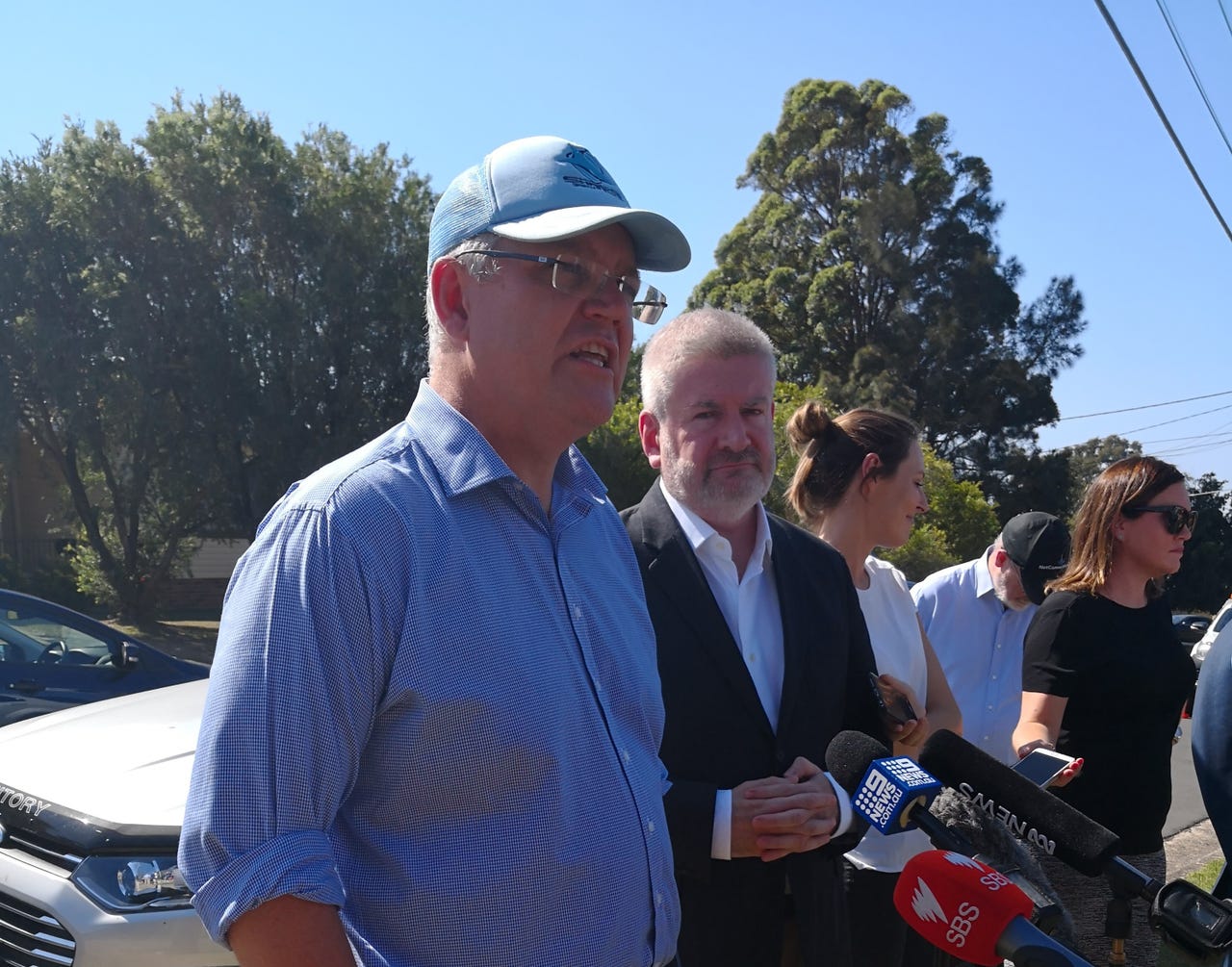Australian PM insists on encryption-busting Bill being passed in next sitting fortnight


Australian Prime Minister Scott Morrison has called for the proposed Assistance and Access Bill to make its way through Parliament in the next sitting fortnight.
"Our police, our agencies need these powers now," Morrison said on Thursday.
"I would insist on seeing them passed before the end of the next sitting fortnight."
Speaking alongside Morrison was Home Affairs Minister Peter Dutton, who said it was unacceptable for police to be unable to read encrypted messages.
"I would call on all members of the committee to do what they can to deal with this matter in an expeditious way, because we do want to arm the police with the ability to look at these encrypted messages," Dutton said.
Read: Australian encryption Bill raises bar for outrageous legislation: Comms Alliance
Earlier in the week, Dutton wrote to the Liberal party chair of the Joint Parliamentary Committee on Intelligence and Security (PJCIS) to speed up its deliberations.
"I would like the committee to deal with it as quickly as possible," he told Sky News on Wednesday.
"I have spoken to [chair] Andrew Hastie about ways in which the committee can deal with this in an expeditious way so that the parliament can deal with it as soon as possible."
Hastie said the matter was urgent but the committee was still in the middle of the inquiry process.
"We've taken quite a bit of evidence and we'll bring that to a conclusion soon," Hastie said.
The committee is due to hold three more public hearings, on November 27, November 30, and December 4 just two days before parliament rises for the year.
See: OAIC calls for sunset clause on encryption-busting Bill and warns of privacy risks
Under the proposed law, Australian government agencies would be able to issue three kinds of notices:
- Technical Assistance Notices (TAN), which are compulsory notices for a communication provider to use an interception capability they already have;
- Technical Capability Notices (TCN), which are compulsory notices for a communication provider to build a new interception capability, so that it can meet subsequent Technical Assistance Notices; and
- Technical Assistance Requests (TAR), which have been described by experts as the most dangerous of all.
In October, Dutton said the Bill was already watered down, and Labor should support it.
"I think there is a common-sense approach here. I think the government has crafted that common-sense approach, but it can only be enacted if it is supported in the Senate," Dutton told the National Press Club at the time. "We can't have on key national security Bills, compromises, because we're dealing with five or six or eight different senators all with different motivations, and pulling in every direction."
Dutton said Opposition Leader Bill Shorten needs to decide whether he is on the side of Silicon Valley multinationals or with "law enforcement and intelligence agencies in this country who want to protect Australians".
The Home Affairs minister added that tech giants need to be hounded to pay more tax in Australia, as they have breached user privacy for commercial advantage, and are protesting moves that will force them to help law enforcement in Western countries while simultaneously doing business in authoritarian growth markets.
"It is essential. Given we are talking about nine out of 10 national security investigations now being impeded because of the use of encryption, we need to deal with it. It doesn't go as far as some people would want, but it is a measured response," he added.
Industry groups calls for PJCIS to resist pressure
After Morrison's and Dutton's press conference, a statement from the Australian Industry Group, Australian Information Industry Association, Australian Mobile Telecommunications Association, Communications Alliance, DIGI, Information Technology Professionals Association, Internet Australia, and IoT Alliance Australia was released, calling for the Joint Parliamentary Committee on Intelligence and Security to resist government pressure.
"There is a need for cool heads to prevail, accompanied by detailed analysis of the impact on Australians and Australian businesses, and for law makers to approach this important task systematically while following due Parliamentary process," Internet Australia Chair Paul Brooks said.
Kishwar Rahman of the Australian Information Industry Association said the committee needs to be given time to assess the material presented to it.
"We all understand that the issues here are real -- and that is why it is so critical that we get this right," Rahman said.
"A rushed and flawed piece of legislation is laden with the potential for unintended consequences that could act to the advantage of criminals and terrorists and to the disadvantage to Australians and Australian industry."
Related Coverage
- Dutton leans on encryption laws committee to hurry up
- Security guarantees will be meaningless under encryption-busting laws: Senetas
- ASIO chief says encryption-busting scheme would not involve persistent monitoring
- There's 'bigger fish to fry' than anti-encryption laws: Telstra security chief
- Australia's anti-encryption legislation fails to address human rights concerns: Committee
- Australian encryption-busting Bill fatally flawed: UN Special Rapporteur
- Dutton frames Encryption Bill debate as battle between protecting Silicon Valley or protecting Australians